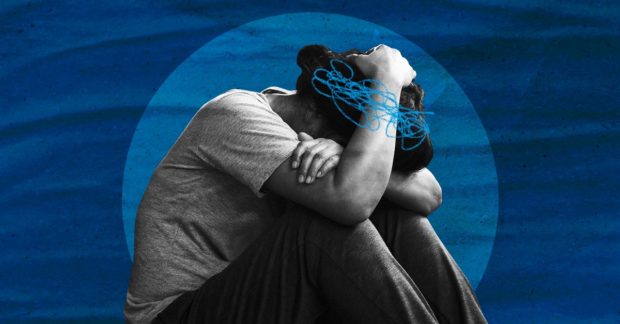Mental health matters, too, in fight vs COVID-19
MANILA, Philippines—As the novel coronavirus pandemic continues to menace the Philippines and the rest of the world, focus has been on the disease’s effects on the respiratory system but it has also taken its toll on people’s mental health.
Even international groups and institutions such as the World Health Organization (WHO) and the Centers for Disease Control and Prevention (CDC) of the United States have recognized this, saying that the crisis has brought stress on a global scale to populations wary of getting infected or on quarantine to avoid infection.
Dr. Rowalt Alibudbud, a psychiatrist for a nongovernment organization based in Makati City and a faculty member of De La Salle University, said there have been studies in the past delving on the relationship between mental health and epidemics—particularly on measures in response to health emergencies like quarantine and isolation.
“What they found out is that the longer you stay in quarantine, it could lead to more fears. There is also inadequate supply and information that could lead to stress,” he told INQUIRER.net in Filipino.
“A lot of my patients are contacting me because for one, it is hard to get medication. Secondly, they feel suffocated inside their rooms. They feel bored which is related to possible triggers to a mental health disorder,” he said.
Article continues after this advertisementThe disease, in itself, is not the sole cause of stress at this time as other social factors could also serve as a trigger, said Albudbud.
Article continues after this advertisementFor instance, Alibudbud said many worry about their financial state during the quarantine and the most vulnerable are those in poor communities particularly those in the informal sector.
“‘If you are on quarantine, you cannot work therefore you do not have money. That is another stressor,” Alibudbud said.
Bigger problem
But this may be hard to address if mental health issues remained a source of stigma in the Philippines, Alibudbud said.
“It is still stigmatized in general. Sometimes people are proactive about it but at the same time, they stigmatize it,” Alibudbud said.
“People say that mental health is important but when they get to that situation, there is still stigma. They are not likely to seek consultation. Sometimes, it’s even the parents that say it’s only a matter of weakness or there were issues in raising the child,” he added.
The expert said that the public should understand that the issue of mental health is multifaceted, meaning it could stem from various reasons—be it biological or social, among many others.
“The reason behind it could be biological. Meaning, there is a medical illness or there is chemical alteration in the brain. But here, there is still stigma,” Alibudbud said.
“Even in first-world countries, it happens and even health workers are actually stigmatized,” he said.
What now?
Even with the quarantine, there are still several things that one could do to ease the stress brought by the pandemic. The most basic? Focus on the things that we have control of.
“Plan your daily activities like, for example, the things you do before you can still do now, you should maintain it,” Alibudbud said.
One could also lessen time spent on social media—or at least be efficient with use of the online platform.
Alibudbud said that the quarantine has led people to spend more time online where misinformation on the pandemic is prevalent which, in turn, could cause more stress.
Instead, Alibudbud said that the digital media should be utilized to stay connected with people despite the quarantine.
“Social distancing is more on the physical aspect but you could always talk to someone, even at a distance. Technology is there so you can send a message or video call,” he said.
Peers can also play a role in easing the stress of their friends by checking in on them or urging their friends to get in touch with a health professional.
“Remain calm with the situation. But if you take a look at it, if you’re feeling fearful or anxious about the situation, it could actually be normal because these are abnormal times also,” Alibudbud said.
“But this becomes a disorder if it paralyzes you. It means that you could no longer do anything because of the fear and anxiety, you could try to remain calm,” he added.
Edited by TSB
For more news about the novel coronavirus click here.
What you need to know about Coronavirus.
For more information on COVID-19, call the DOH Hotline: (02) 86517800 local 1149/1150.
The Inquirer Foundation supports our healthcare frontliners and is still accepting cash donations to be deposited at Banco de Oro (BDO) current account #007960018860 or donate through PayMaya using this link.


